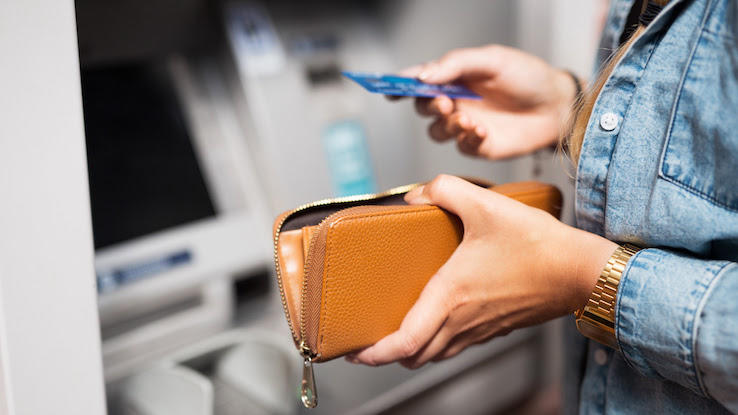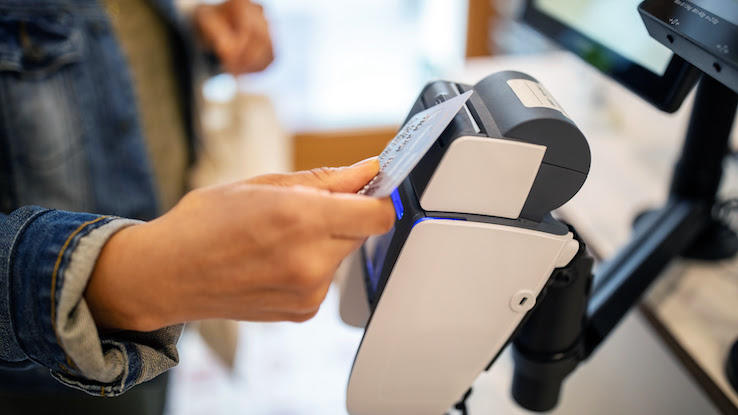What Do You Need to Get a Black Card

Many across the world use debit cards to access their money for payments and withdrawals easily. These cards have been in existence since the 1970s. They eliminate the need to carry around cash or checks.
In today's age, debit cards are regularly used for convenience. With a mere swipe or tap, you can pay for purchases while on the go. However, there are clear differences between these cards, credit cards, and other cards that people may use. Let's take a look at what debit cards are and how you can use them.

A debit card looks just like a credit card, but it is linked directly to your account through a bank or credit union. This type of payment card deducts money directly from the balance of that account whenever it is used.
Also called "check cards" or "bank cards," individuals can use these cards to make purchases online or in person. In addition, people can use debit cards to withdraw funds from an automated teller machine (ATM). Some merchants also allow customers to receive cash back with a debit card after making a purchase, as long as there are available funds in your account.
How do Debit Cards Work?

Debit cards can be used in a few different ways. Typically, people use debit cards to withdraw funds from an ATM. When you approach an ATM, the debit card can be inserted into the machine, where you will likely be asked to enter your personal identification number (PIN) to access the funds in your account. From there, you will be able to not only withdraw funds but also transfer and deposit money, as well as view your account balance.
For those who use debit cards for in-person purchases, all you have to do is run the black magnetic stripe on the back of the card through the card machine or insert your card into a special slot for built-in security chips. In addition, some merchants now allow you to merely tap your card on the machine to pay with contactless chip cards.
With any type of purchase with debit cards, merchants often place a hold on money in an account to reserve funds until the transactions are completed. Therefore, customers using debit cards should keep a safe amount of funds in their accounts in case of a more extensive hold on their accounts.
Types of Debit Cards

There are a variety of debit cards that you may come across. The most common type of debit card, which we've already discussed, is a check card. That card is associated with the bank where you have your checking account. EMV debit cards are precisely the same as check cards, except that they have computer chips embedded within them. These chips contain encrypted information that must match the PINs entered to work. As a result, these EMV debit cards are more challenging for scammers to copy than cards with just the traditional magnetic stripes.
ATM cards, or PIN-only debit cards, can only be used by entering your PIN at an ATM. That way, if someone were to find your ATM card, they wouldn't be able to use it. These cards are pretty rare these days, though, as most banks offer check cards that double as an ATM card. Another type of debit card is a prepaid card which is not connected to a checking account at all. These cards withdraw funds stored in a separate prepaid account, which can cost fees for consumers to use. Gift cards are also considered a type of debit card, as they involve loading money onto the card for purchases.
Debit Cards vs. Credit Cards

Though some may use the terms "debit card" and "credit card" interchangeably, the two are actually quite different. We've discussed what a debit card is and how it links to existing or prepaid funds on an account. However, credit cards are another type of card that your bank could issue.
Credit cards give consumers access to a line of credit from a bank, with the amount depending on the specific credit card and the credit history of the consumer. There is a full application process needed for a bank to issue you a line of credit. While it can be easy to open up a bank account and get a debit card, it may be harder for some to get a credit card based on bad credit history or a lack thereof.
However, when you get a credit card, you can make more significant purchases that you can pay off over time (though you should be aware of your bank's interest fees and late payment fees). With credit cards, you may also receive perks like frequent flyer miles or gift cards.
Can You Use a Debit Card Online?

If you want to make purchases online, then yes, a debit card will work online. Particularly it will work for those who have check cards, prepaid cards, or gift cards. Because a card number is associated with these cards, you can easily enter that information online to finalize purchases.
However, credit cards are much safer to use when you buy things online. It's easier to file a claim for fraud and get your money back if you encounter an issue with an online purchase. If someone steals your check card number online, the scammer can easily take all of your money out of your bank account.
How to Get a Debit Card

It's pretty simple to get a debit card. People can typically purchase prepaid cards or gift cards at grocery stores or convenience stores using cash or check. The steps to get a check card can be a little more detailed but not too complicated either.
To get a check card, you will have to open up a bank account. First, you should research the right bank and account that you want. You will likely need a few forms of identification to open up the account as well. Those can include a passport, driver's license, state identification card, birth certificate, or Social Security card. Some banks will allow you to provide one form of identification and a bill addressed to you.
For the account, you may also need a minimum opening deposit to open the account. Typically, you can do this in person or online. Either way, a bank will send you a check card to activate and use at your nearest ATM or for other purchases.
MORE FROM ASKMONEY.COM
What Do You Need to Get a Black Card
Source: https://www.askmoney.com/credit-cards/guide-debit-cards?utm_content=params%3Ao%3D1465803%26ad%3DdirN%26qo%3DserpIndex